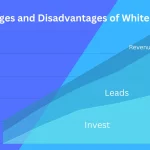SEO is a strategic marketing technique. It needs huge investment and time compared to other digital marketing fields. Many entrepreneurs don’t want to invest in SEO as it requires a big investment, time, and difficult to measure ROI. In this context, I will talk about how to measure ROI of SEO.
Let’s jump into the deep:
What is ROI?
ROI stands for Return on Investment. It is a financial metric that is commonly used to evaluate the profitability of an investment or to compare the efficiency of different investments. ROI is calculated by dividing the net gain from an investment by the initial cost or outlay of the investment and then multiplying the result by 100 to express it as a percentage.
The formula for ROI is:
(Net Gain from Investment/Initial Cost of Investment) *100
In business and finance, a positive ROI indicates that the investment has generated profit, while a negative ROI suggests a loss. ROI is a useful tool for decision-making and performance evaluation in various fields, such as business, real estate, and finance. Keep in mind that while ROI is a valuable metric, it’s important to consider other factors and metrics as well when making investment decisions.
How to Measure ROI of SEO
Measuring the Return on Investment (ROI) of Search Engine Optimization (SEO) efforts involves assessing the impact of SEO activities on your website’s organic search performance and relating it to the business outcomes. Here’s a general guide on how to measure the ROI of SEO:
Set Clear Goals:
Identify specific and measurable goals related to your business objectives. These could include increased organic traffic, improved keyword rankings, higher conversion rates, or enhanced online visibility.
Use Analytics Tools:
Utilize web analytics tools such as Google Analytics to track key metrics. Monitor organic traffic, keyword rankings, click-through rates, conversion rates, and other relevant data.
Track Conversions:
Define and track conversions that matter to your business, such as product purchases, form submissions, or sign-ups. Attribute these conversions to the source, including organic search.
Assign a Monetary Value:
Assign a monetary value to your conversions. This could be the actual revenue generated from a sale or an estimated value for other actions like lead generation.
Calculate Costs:
Determine the costs associated with your SEO efforts. This might include expenses for tools, software, content creation, and any fees paid to SEO professionals or agencies.
Calculate ROI:
Use the ROI formula mentioned earlier:
(Net Gain from SEO/Cost of SEO)*100
- Net Gain from SEO is the additional revenue or value generated from organic traffic and conversions.
- Cost of SEO includes all expenses related to your SEO efforts.
Attribute Changes to SEO:
Correlate changes in organic traffic and other metrics with specific SEO activities. This can involve tracking the impact of on-page optimization, link-building campaigns, content creation, and other SEO strategies.
Monitor Keyword Rankings:
Keep an eye on the rankings of your target keywords. Improvements in rankings for relevant keywords can contribute to increased organic traffic and, ultimately, ROI.
Consider Customer Lifetime Value (CLV):
For some businesses, especially those with subscription models, it’s important to consider the long-term value of a customer. Include the CLV in your ROI calculations for a more comprehensive view.
Regularly Review and Adjust:
SEO is an ongoing process. Regularly review your SEO strategy and metrics. Adjust your approach based on the performance data and changes in search engine algorithms.
By following these steps, you can gain insights into the effectiveness of your SEO efforts and make informed decisions to optimize your strategy for better ROI. Keep in mind that SEO is often a long-term investment, and results may take time to materialize.
Also Read:


Importance of Measuring ROI of SEO
Measuring the Return on Investment (ROI) of Search Engine Optimization (SEO) is crucial for several reasons:
Demonstrates Value to Stakeholders:
ROI metrics provide tangible evidence of the value of SEO efforts. This is essential for convincing stakeholders, including executives and decision-makers, of the importance of allocating resources to SEO strategies.
Informs Resource Allocation:
Knowing the ROI of SEO helps in making informed decisions about where to allocate resources. It enables businesses to focus on the most effective strategies and tactics, optimizing the use of time and budget.
Guides Strategy Development:
By understanding the ROI of various SEO activities, businesses can refine and optimize their strategies. This includes adjusting keyword targeting, content creation, link-building efforts, and technical SEO elements to maximize impact.
Quantifies Business Impact:
ROI metrics translate SEO performance into concrete business impact. This could be in terms of increased revenue, improved lead generation, higher conversion rates, or other key performance indicators (KPIs) that align with business goals.
Supports Decision-Making:
Businesses can use ROI data to make informed decisions about whether to continue, modify, or discontinue specific SEO initiatives. It provides a basis for evaluating the effectiveness of different strategies and making data-driven choices.
Facilitates Performance Comparison:
Measuring ROI allows businesses to compare the performance of their SEO efforts over time. It helps in identifying trends, understanding what works and what doesn’t, and adjusting strategies accordingly.
Enhances Accountability:
ROI metrics hold SEO teams accountable for their efforts. It provides a clear picture of the outcomes achieved in relation to the resources invested. This accountability is important for maintaining transparency and trust within the organization.
Aligns SEO with Business Objectives:
Understanding the ROI of SEO ensures that the optimization efforts are aligned with broader business objectives. This alignment is crucial for ensuring that SEO contributes meaningfully to the overall success of the business.
Aids in Forecasting and Planning:
With historical ROI data, businesses can make more accurate forecasts and plans for the future. This includes setting realistic expectations, budgeting for SEO activities, and establishing achievable goals.
Justifies Budget Expenditure:
Businesses often have limited budgets, and ROI measurement helps justify the allocation of funds to SEO activities. It provides evidence that the money invested in SEO is generating a positive return.
Measuring the ROI of SEO is essential for demonstrating the value of search engine optimization, guiding strategic decisions, and ensuring that SEO efforts contribute effectively to the overall success of the business. It provides a framework for continuous improvement and optimization of SEO strategies.
End Words
Measuring the ROI of SEO is very important for entrepreneurs as well as SEO agencies. Entrepreneurs can understand their benefits and SEO agencies can understand their performance by measuring the ROI of SEO.

